



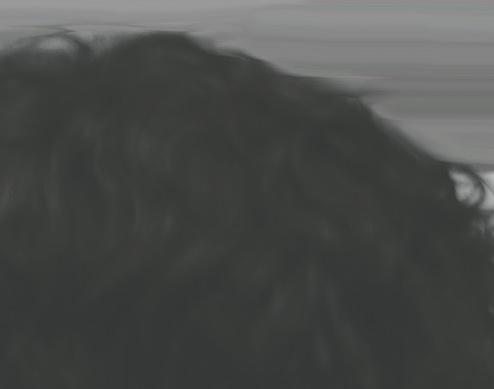
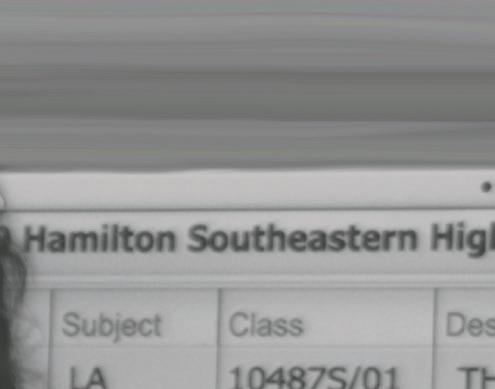


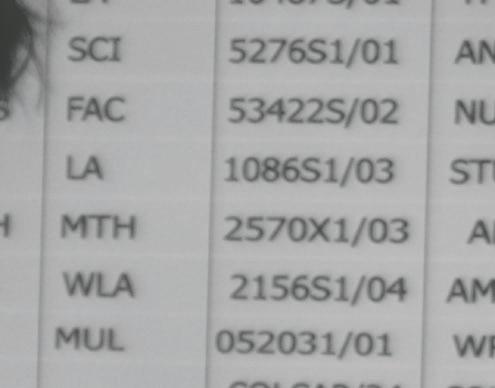
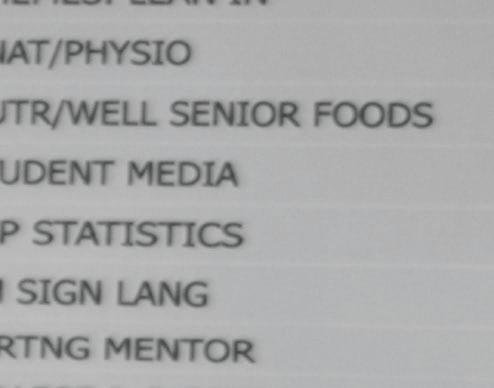


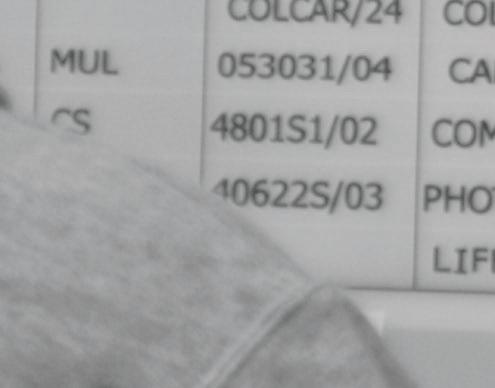
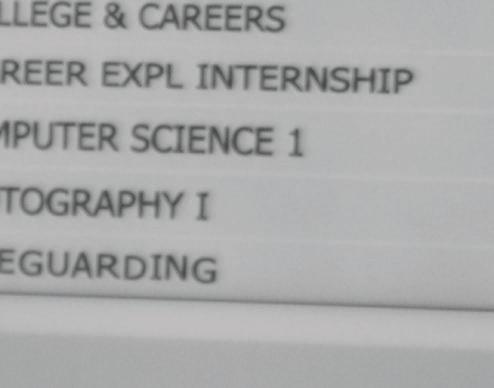
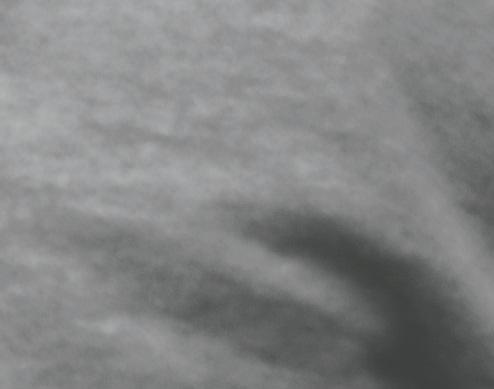



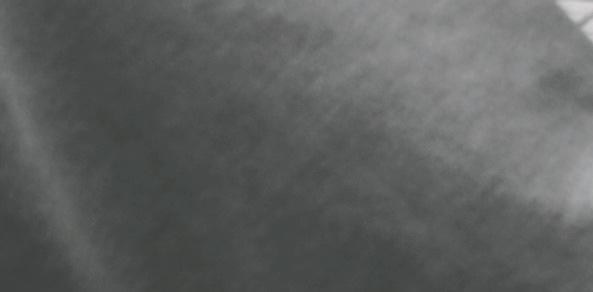



THE SCHEDULING ISSUE... FEATURE 3 - SENIORS KNOW BEST COVER 4 - BUILDING A RESUME CLASS FEATURES 6 - LIFEGUARDING ON THE FLIPSIDE 8 - EDITORIAL CARTOON O R B THE SCHEDULING ISSUE... FEATURE 3 - SENIORS KNOW BEST COVER 4 - BUILDING A RESUME CLASS FEATURES 6 - LIFEGUARDING ON THE FLIPSIDE 8 - WORD SEARCH
5 CLASS FEATURES

Probability
MAKING COURSES COUNT
A common dilemma students express as they leave high school and enter the real world is that they have memorized and can use the Pythagorean theorem, but do not know how to file their taxes. In other words, many feel as if high schools, including HSE, should put more focus on classes that build real world skills. Contrary to popular belief, HSE offers classes that can prepare students for life after high school. However, with the number of specific credits students must earn for a diploma as well as the addition of classes they may be more interested in, it is difficult for a student to be able to squeeze these practical classes into an average schedule. To achieve a Core 40 high school diploma at HSE, a student must earn seven electives, one of which being a business credit and the other six falling into the categories of Fine Arts, World Language and Career/Technical. This only allows for a few semesters of electives. While there is room to include real world classes in a schedule set to achieve a Core 40 diploma, many students are likely to skip these opportunities and instead jump into classes that are geared toward exciting careers. This causes the issue of some alumni not knowing how to perform simple adult tasks. While they may not know how to balance a checkbook, taking these specific and interesting classes gives students experience in their field of choice. Gathering skills from these classes not only gives students a boost in college but adds to their future collection of collegiate credits as well. No matter how helpful the realworld classes are, students want to have fun and learn engaging skills that are in accord with their ideal career. In the end, students are given a choice. They can embrace the once in a lifetime opportunity to attend the vast number of fascinating classes only available at HSE, or they can prepare themselves for life after high school. Whether they choose to learn practical skills or seize the amazing opportunities HSE offers in their high school years, students are better prepared for the world they enter after the diploma is placed in their hand.
MEET THE STAFF
STAFFERS
Cassidy Hayes
Emma Bieberich
Sornavalli Chockalingam
Kaiden Corliss
Xavier Dokes
Paityn O’Neill
Mackenzie Dreher
Benjamin Kruer
Trinity MacKenzie
Trestyn Mayberry
Josephine Neu
Mirabella Russell
Lauren Kopka
Nicole Morris
Grace Duffy Mame Fall Parker Farrand
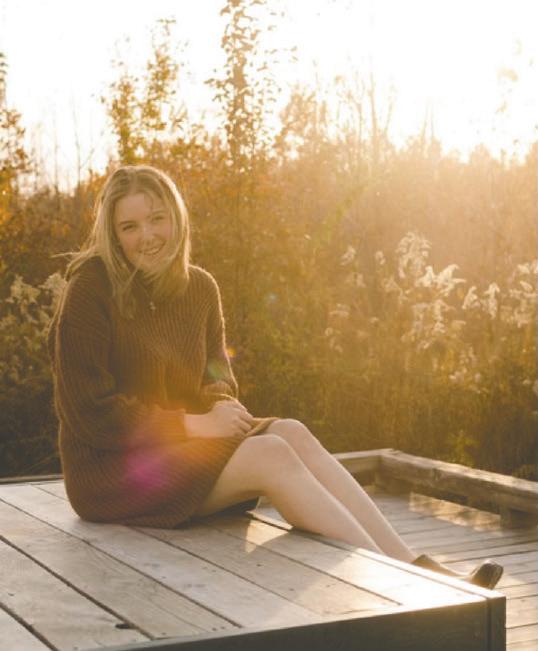
Kameron Grays
Avery Grunder Marley Hayes
Gabriella Haynes
Joseph Karwowski
Julianna Wells Norah Wills David Young
Keaffaber
JULIANNA WELLS
Julianna is an exhuberant staffer who uses her creativity and go-getter attitude to help make our publications shine. While she has only been on staff for two semesters, she is already making a strong impact.
02 editorial
EDITOR-IN-CHIEF NEWS EDITOR
FEATURE EDITOR COPY EDITOR
Tatum
STAFFER OF THE ISSUE
IN THIS ISSUE
6 CLASS FEATURES 7 CLASS FEATURES 8 ON THE FLIPSIDE
ADVISER
ABILITY OR ADVENTURE Hamilton Southeastern High School
4
and Statistics, Anatomy and Physiology, Lifeguarding, Senior Foods Color Guard, American Sign Language, Photography, Prep for College and Careers Career Center Updates STAFF EDITORIAL:
COVER Building a Resume
Student Media, Writing Center,
Education, Lean-In Have you ordered your yearbook yet? If not, scan here!
Law
SENIORS KNOW BEST
ADVICE FROM THE CLASS OF 2023
- Ashenafi Caylor, 12
Infograph by Emma Bieberich and Grace Duffy.
ALUMNI UPDATE
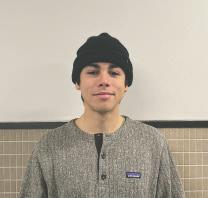
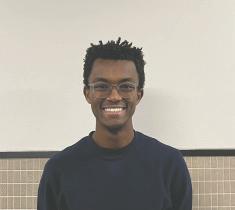
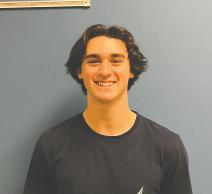
PAIGE STOEFFLER: CLASS OF 2019
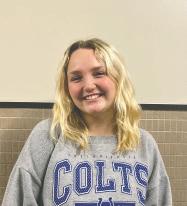
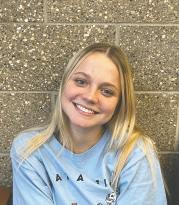
After graduating from HSE in 2019, Stoeffler at Marquette University. While at Marquette, she served as a Resident Assistant in the dorms. Stoeffler pursued the job because she enjoys leadership and has a passion for challenging herself. Stoeffler said that HSE has helped her to appreciate the things she enjoys and to incorporate them into her life. Looking back on the impact of high school on her life, Stoeffler encourages students, “to go after what brings them joy and purpose. Life is about more than profit.” Story by Avery Grunder. Photo contributed.
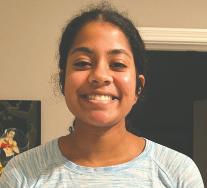
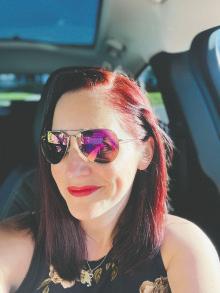
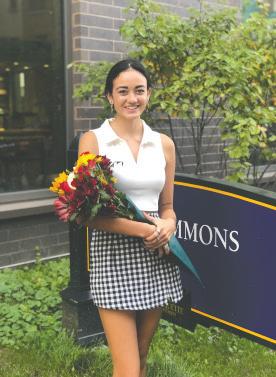
KERRY PATERSON: CLASS OF 2002
After graduating from HSE in 2002, Paterson, then Headrick, worked for a little while before deciding to attend Ivy Tech and Western Governors University in pursuit of a nursing career. Paterson has pushed through many challenges to become a clinical nurse manager for Indiana University Otolaryngology. Paterson cherishes her time at HSE because it helped her to develop a need for learning that has driven her to accomplish her goals in life. Paterson encourages high school students to know that “it’s okay to take time to figure out your life.” Story by Avery Grunder. Photo contributed.
03 student feature
Volume 34 | Issue 4 | Jan. 10, 2023
Kerry Paterson, 2022.
03 student feature
it comes to [college] applications, get them done early.” “Surround yourself with good people and don’t procrastinate.”
all of your information like your transcript and parents’ information at your disposal.” “Buy a planner and organize your assignments and quizzes and it’ll make school so much easier.”
nice to the people around you and in the classes above and below you.”
strategic about the layout of your classes and find a hobby and friends to eat lunch with.”
“When
“Have
“Be
“Be
- Jacob Miller, 12 - Eleanor Conley, 12 - Brianna Tappendorf, 12 - Suhita Chintalacharuvu, 12 - Gregorio Oliveira, 12
BUILDING A RESUME
BUSH EXPLAINS SCHEDULING VISION, GOALS
picking classes, contemplate choosing courses that will challenge oneself, but not push one’s limits too early in the high school process.
One way to prevent overworking is to start slowly and show an upward trend of challenging courses over multiple school years. As practice is acquired with the workload and comfort is achieved, boundaries can be further pushed to build a stronger resume for college. A common myth is that senior year does not matter since one could potentially get accepted in the first semester of senior year. Yale demystifies this idea with a clear statement on what colleges look for.
take AP Literature and Composition, while students who love algebra should try AP Calculus.
Very few high schoolers know a plan for post-secondary career . Bush poses an interesting idea to those who are unsure of where their future career lies.
“If I could give you one million, two million dollars for the rest of your life and money wasn’t an issue,” Bush said. “But you had to get up and do something for work every day, what would you do?”
Each year at the start of the second semester, students go through a PowerPoint that outlines the scheduling process. However, scheduling is not as simple as it is made out to be. Students are faced with the challenge of considering what specific courses and skillsets are required for their desired career postsecondary. Overall, scheduling courses and high school experiences should be seen as building a resume.
As part of their admission tools, Yale University provides scheduling advice for students looking into not just Yale, but college in general. A common theme across all colleges is a desire for students to take courses that will challenge them. Regardless, each college will have specific requirements or key determiners that will have to be checked on a case-bycase basis.
“When an admissions committee looks at your transcript, it will not focus on whether you have taken any specific course. It will be far more interested to see that you have challenged yourself with difficult coursework,” The Yale Admissions Guide explains.
What Yale means by difficult coursework is taking Advanced Placement, Advanced College Project, or progressive courses. As a student
The guide adds, “If you wish to make your application among the most competitive, you must take a challenging senior program and continue to excel in it.”
Another important factor to consider is how competitive one’s college application needs to be. For many who plan to do early action college admissions, there is only three years of high school to show off growing talent and progress via coursework.
Karen Bush, Director of College and Career Counseling at HSE, shares what it looks like to prepare oneself for college.
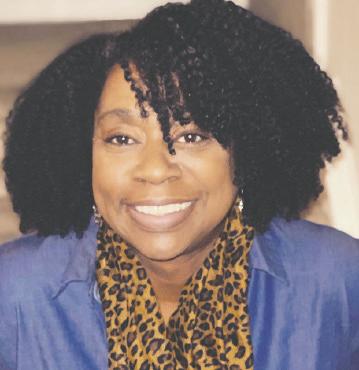
“Scheduling has to be a two-way conversation,” Bush said. “And it is your responsibility who is the arbiter of your life here at school to have input as to what you want to take.”
Bush wants students to research and find courses of interest and open the conversation beyond course requirements. When considering what courses to take, Bush thinks it is best to have a balance of rigor where students feel confident instead of an overload.
“We’ve set up a system so that you can kinda peak behind the curtain,” Bush said. “So, take the harder classes, but take [them] in your interest.”
Students who love literature should
High school is the ideal place for students to experiment with different career paths through HSE’s diverse course selection. Bush understands how fearful it can be to try and approach a counselor, an adult, and try to contribute to the conversation of scheduling. It is critical for a student to remember that it is their future.
Bush encourages students to come as a mature child: not prepared with all the answers or a perfect idea, but a starting point. A student should know where they stand in their journey to postsecondary preparedness, and also their interests and questions to get the ball rolling on ideas that could turn into careers.
“A goal without a plan is just a wish,” Bush said. “I don’t know how many wishes upon a star have come true for you but none for me, but if you put a plan in place [your goal becomes achievable], and it is [our] job to help you put a plan in place.”
Scheduling begins Jan. 10, which leaves no time to waste. Meeting with counselors is the next step on the journey to life after high school. Students should do research, formulate questions and be prepared to work towards a plan for the future. Story by Parker Farrand and Marley Hayes. Additional contributions by Addison Ginther and Madelynn Page. Photo contributed.
04 cover
“A goal without a plan is just a wish.”
- Karen Bush
04
WRITING CENTER COMMUNICATIONS AND MEDIA ARTS
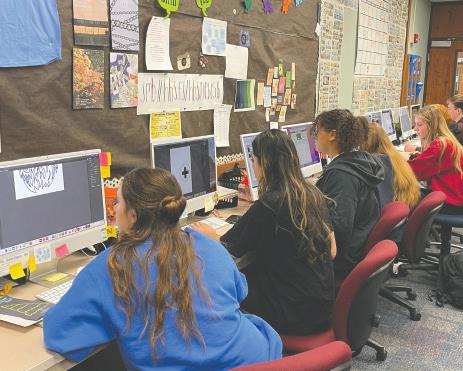
The Writing Center is a useful tool offered to students to help improve their writing. Students enrolled in the semester long Writing Mentors assist in editing papers and essays varying all subjects. Enrollment is dependent on teacher reccomendation. Help also reaches to writing competitions and scholarships to help students excel in their writing. Upon receiving paper via either the Canvas Dropbox under the class ‘Writing Mentors’ or during an in-person consultation the Writing Mentors are tasked with editing and advising in a timely manner. “I love helping other people with their writing,” senior Sophie Boulet, a Writing Mentor said. “Writing is something that I am really passionate about, and I love helping others write to their best abilities.” Story by Kameron Grays.
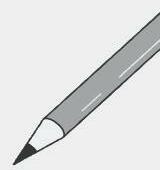
LAW EDUCATION SOCIAL STUDIES

The Law Education class offered here at HSE is an option for a student to get a start in law. Entering into an academy internship, becoming an attorney or even being a part of the NCAA legal department office for the Pacers are possible careers that can stem from a career in law. “[Law Education] is a step in the door to learn about how the legal system works,” said Gaye Garrett, the instructor of this semester class. Even if students are not directly interested in law, freshmen and sophomores are encouraged to take this course. After taking Law Education, juniors and seniors are able to take the Topics in History/Constitutional Law class. Once enrolled, a student will not only learn the fundamental components of law but also apply them in hearings and mock trials such as the case of SpongeBob on trial. Story by Kaiden Corliss.
LANGUAGE ARTS
LEAN-IN
Lean-In is a semester course available to juniors and seniors. It counts as an English elective and focuses on self-awareness. The class works on writing, speaking and analyzing media about authenticity and diversity in society with non-traditional assignments and assessments. The class is taught mostly through a feminist lens and includes various perspectives. Jill McGrath has been teaching this class for five years. “Hopefully, [students take away] a meaningful understanding of the power of personal writing, a way to filter through the messages our society imposes on us, how to create community and how to deliver meaningful presentations,” McGrath said. “This class pushes the [mainly female] students in the course to see the need for diverse representation at all levels of professional careers and the importance of women and diversity in politics and people with power.” Story by Julianna Wells.
class
COMMUNICATIONS AND MEDIA ARTS

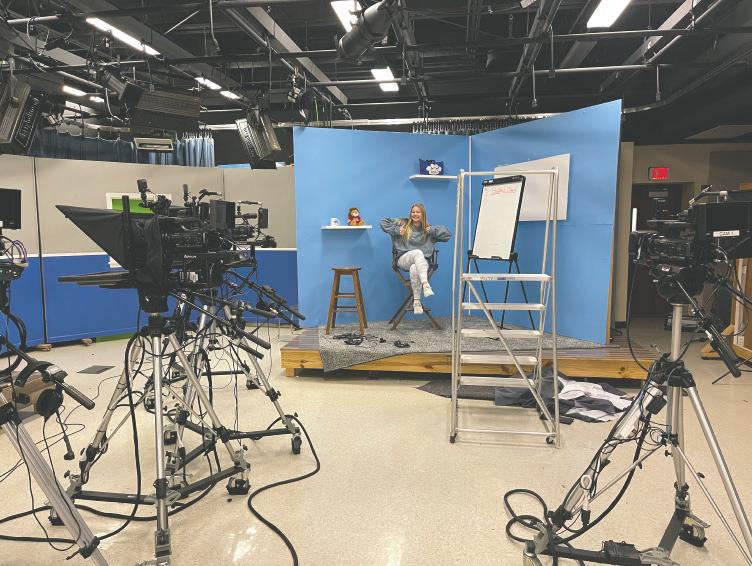
STUDENT MEDIA
Ever wondered who is on the school news or who writes the “Orb”? Student Media is a Fine Arts class that provides students with practical experience within the journalism and media fields. In this class, students are responsible for all content and decisions. The prerequisites for this class are either Digital Media,
“This is a class where people get to explore and create,” Student Media teacher David Young said. “Most of the people who take a Student Media class go into a related field because they find not only an interest but a skillset they would like to continue.” Story and photos by Xavier Dokes.
05 class features
05
APPLIED SCIENCE LIFEGUARDING PHYSICAL EDUCATION
SENIOR FOODS
Senior Foods is a class where students in 12th grade can learn culinary skills to prepare for the future. Students will learn cooking equipment and cooking terms. “A lot of seniors are going into the next phase of life,” Senior Foods teacher Jessica Williams said. “Just being on their own or living on a college campus. So, we make that [grocery shopping] a priority.” Students work
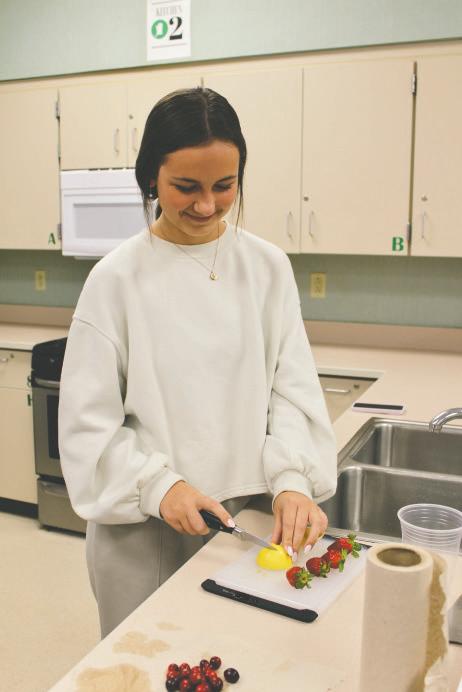
Break up your school day by jumping in the pool and learning to save lives. “I would love to teach this class,” Physical Education teacher Kaylee Johnson said, “But not enough people have signed up.” Lifeguarding is a class that has been offered to students in the past, but not enough people know it is available to them. This class teaches the fundamentals of lifeguarding and is said to be an enjoyable course. Lifeguarding counts as a PE credit and can be brought back if enough people are interested. Talk to counselors about being interested and bring back lifeguarding. Story by Mackenzie Dreher.
in labs the whole semester, going into basic construction of meals. Students will be able to take-away skills in how to cook for themselves, have better knowledge of trying new recipes and learn how to alter recipes. This course teaches skills necessary for independent living. Additionally, Senior Foods can help students who want to pursue a career in the food industry after high school. Story by Mame Fall. Photo by Sornavalli Chockalingam.
PROBABILITY & STATISTICS
Probability and Statistics is a one semester class available to juniors and seniors for additional math credits. Taught by Jay Taylor, students cover topics like computing in Google Sheets, interpreting graphs, using probability models and doing Bernoulli Trials. Each class block contains a lesson, activity and homework. Further along in the course, there are mini projects that include looking at data from a single or multiple events and breaking it down into numbers. It is great for a statistician or research/computer analyst foundation. Story by Tatum Keaffaber.

MATHEMATICS SCIENCE
ANATOMY & PHYSIOLOGY
Anatomy and Physiology is the class for students who excel in Biology and are interested in a career biomedicine or healthcare. Anatomy and Physiology is a full year course that any student who receives a ‘C’ or better in Biology can take. The course is taught by Brandalyn Hinen and Erin Gastineau. “[The course load is] a lot of lab work and a good deal of memorization, but the actual homework load is very similar to other science classes,” Hinen said. “The main takeaway of this class is understanding how the various organs and systems work together in concert to maintain our overall health and homeostasis.” Story by Josephine Neu.
06 class features
06 class features
PERFORMING ARTS
COLOR GUARD
Color Guard is a Fine Arts that gives students the opportunity to take a class in which they rehearse and receive instruction on their performances and skills. A wide variety of skills and activities can be experienced by students actively participating in this class, including comprehension and memorization skills of music and dance patterns, an better understanding of the body’s physical potential through dance, demonstration of elements of physical and mental technique and interpreting musical phrasing, rhythmic structures and meters. This class may be taken one or two semesters. Students can earn alternative physical education credit if they are a freshman, sophomore or junior and participate in Color Guard during the fall or winter season. For more information on physical education credit, visit your “Class of” page on Canvas. Story by Avery Grunder.
VISUAL ARTS
PHOTOGRAPHY
In this semester-long introductory class, students learn the basic principles of photography, photo editing programs and critiquing the quality of photos. Using DSLR cameras and Adobe programs, students gain the knowledge and experience for future careers in the photography field. With the prerequisite of Introduction to 2D art, all grade levels are welcome to take this fun and engaging class. The instructor of this course, Lauren Reed, is new to the school yet is enthusiastic in teaching students who are eager to learn about photography. “This class enables them to see the world in a new perspective through a camera lens,” Reed said. “Students gain the technical aspects necessary to take.” Story by Kaiden Corliss.
BUSINESS
PREP FOR COLLEGE AND CAREERS
Most students take this class to get a feeling of how the business industry functions and what skills needed to get prepared for college and beyond. It involves real-world applications that improve the skillset of students for their futures. “This is the first class that really exposes you to a college workload and shows what is needed to be done to succeed in the business world,” senior Ian Smith said. This class, for freshman and sophomores, counts as a business credit and is taught by Shawn Crull, Scott May or Morgan Ragsdale. Story by Joseph Karwowski.
WORLD LANGUAGE
AMERICAN SIGN LANGUAGE

The American Sign Language class is a way to give students who are interested in the language more opportunities. This language is used by the majority of deaf and hard of hearing people in the United States. HSE currently offers two American Sign Language classes for sophomores to seniors. ASL 1 provides a firm foundation in culture, language and linguistics of the deaf community. ASL is a very visual language, and the students who take this class need to train their eyes to read it and use body movements and facial expressions in order to communicate with others.
In ASL 2 the study of the culture in the deaf community will continue but students must have a C average or higher in ASL 1 to move forward to ASL 2. Students are also required to take a placement test at the beginning of the year to see which level is more appropriate for them. By taking American Sign Language, students gain both access to the culture of deaf and many insights into features of spoken language that are often taken for granted. Story by Mirabella Russell.
07 class features
07 features
explore diff erent career options.”
Logan said. “[Furthermore] students are able to





excel in traditional settings to thrive,” junior Jacob
school’s education. “[CTE courses] allow students who might not
and courses off ered at HSE! Story @hsenews @SoutheasternSN_ @hsetv @SoutheasternSN
by Benjamin @hsenews www.issuu.com/hsenews
to schools who make CTE an integral part of the
from the Carl Perkins grant. This grant gives funds
receive an additional $500,000 of funding a year
as welding. On top of this, HSE will be eligible to
continue to be off ered at HSE, including ones such
Many of the same classes off ered by JEL will

to travel to the JEL Career Center in Indianapolis.
HSE, meaning that students will no longer have
These new CTE courses will be on campus at
Dr. Yvonne Stokes said on the HSE Schools website.
graduate from HSE Schools,” HSE superintendent
wage, high-skill and in-demand careers once they
opportunities that will prepare them for high-





exposing our students to new classes and training
“We are excited to be a part of this initiative in
Education (CTE) courses.
Fishers’ economy by off ering Career and Technical

work experiences so that they can positively impact
with other companies to give students excellent
The Pursuit Institute claims to use partnerships
Westfi eld, by joining the Pursuit Institute.
schools in Hamilton County such as Carmel and






JEL classes and instead will follow many other
2022-2023 school year, HSE will no longer off er
made by the school board Oct. 26. Following the
Center. This all will change following a decision
(JEL) courses off ered at HSE and the JEL Career
education at HSE have attended the J. Everett Light
For years students pursuing jobs in technical
JEL LEAVING HSE
On the Flipside
Use the QR codes to explore the many deparments









be overlooked when scheduling classes.
Kruer. Additional contributions by Trestyn Departments Course Descrpitions
development of students’ abilities and should not
environment where students learn by doing.”
teacher of the course, said. “This is a ‘real-world’
10 hours a week as an intern,” Scott May, the
“This is a project-based course, including working



gain from participating in internships.
and employers value the experience that students
workforce. Along those same lines, both colleges
college and for those who are planning to enter the
provide valuable experience for those going to
doors, including potential internships. Internships
By taking these CTE courses, students open many
Computer Science Principles.

is completed, such as Computer Science II or AP


classes that can be taken after Computer Science I
science classes. There is also an abundance of










I, meaning that it is not hard to take computer

The requirement for the course is only Algebra
standards from variables to loops and structures.
will be tasked to use a variety of computer sciences
of work. Even in the most basic courses students
introduces students to a rapidly expanding area
fi elds. For example, the computer science course
also prepare students for new and developing
What Logan says is certainly true, but CTE courses
While JEL may be leaving HSE, CTE courses
remain. These courses are instrumental in the
Mayberry and Xavier Dokes. LEAN IN ANATOMY PHYSIOLOGY FOODS MEDIA LIFEGUARDING ENGINEERING WELDING LAW ASL
www.hsenews.com Word Search













































































